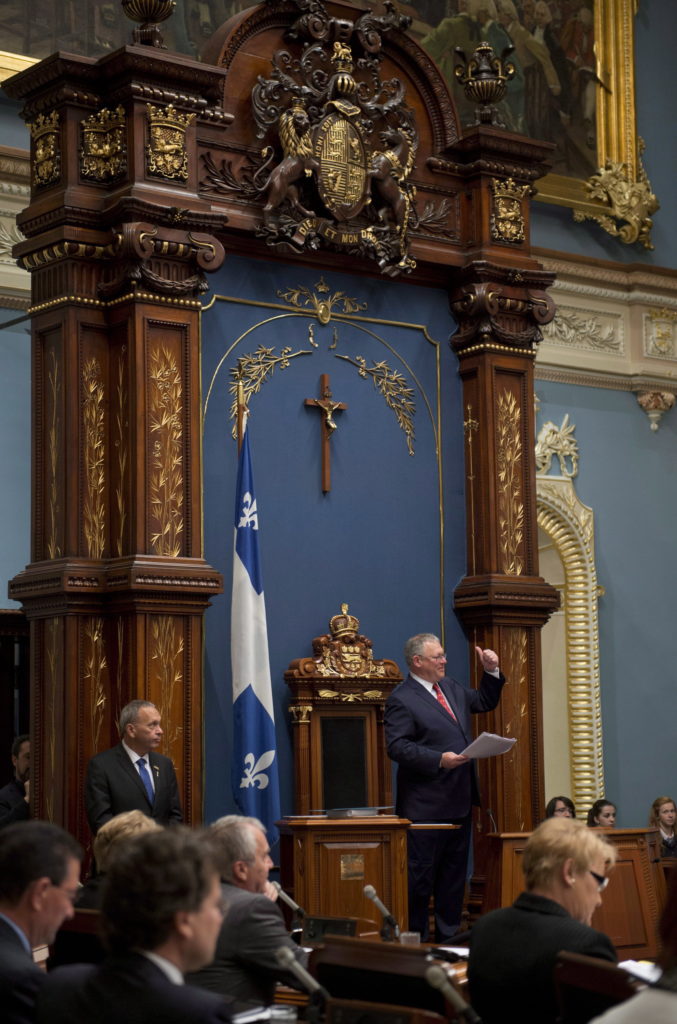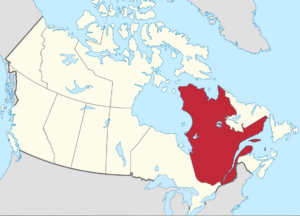April 19, 2019

The government of the Canadian province of Quebec has introduced legislation to ban government employees from wearing religious symbols at work, a controversial move that critics say targets Muslim women who wear head coverings.
The ban will also apply to Sikh turbans, Christian crucifixes and Jewish yarmulkes.
The proposed law, introduced March 28, sets the province’s rightwing government, led by the Coalition Avenir Quebec (CAQ) party, on a collision course with Prime Minister Justin Trudeau, a liberal who promotes religious freedom, in a federal election year with French-speaking Quebec a vital battleground.
Trudeau told reporters, “It is unthinkable to me that in a free society we would legitimize discrimination against citizens based on their religion.”
The legislation, which is expected to pass since CAQ hold a majority in the provincial legislature, will cover public workers in positions of authority, including teachers, judges and police officers. It exempts current government employees—but would apply to them if they switch jobs or get a promotion.
The bill asserts that secularism “should be affirmed in a manner that ensures a balance between the collective rights of the Quebec nation and human rights and freedoms.”
Governments in Quebec—led by different parties—have tried four times in recent years to restrict civil servants from wearing overt religious symbols in an effort to cement a secular society.

The CAQ was elected late last year in part on pledges to restrict immigration and impose secular rules. Quebec Premier (Governor) Francois Legault told reporters the bill “represents our values and it’s important.”
But condemnation was quick, with Jewish advocacy group B’nai Brith calling the bill “an assault on the fundamental rights and freedoms of Quebecers,” while the National Council of Canadian Muslims said it will make Muslims and other minorities “second-class citizens” and overwhelmingly affect Muslim women.
Montreal Mayor Valerie Plante voiced “serious concern about the message that this bill sends to minorities about their fundamental rights.” The important thing, she said, was that the process of making laws was secular, not that people divested themselves of religious attire and symbols.
Teachers unions said they would not enforce the law, while pundits and the government’s own lawyers, according to reports, anticipate a court challenge for contravening Canada’s right to personal religious freedom enshrined in the Canadian bill of rights.
Like France, which passed a ban on veils, crosses and other religious symbols in schools in 2004, French-speaking Quebec has struggled to reconcile its secular identity with a growing Muslim population, many of them North African immigrants.
Eight other European countries enforce various restrictions on religious attire, which has been a major issue in much of Europe, although not in the English-speaking world.
While the Quebec legislation does not single out any religion by name, Muslim headgear has long been a source of public debate in Quebec.
Quebec’s minister for the status of women drew condemnation earlier this year after she said the Islamic headscarf is a sign of female oppression.
And a Montreal-area municipal politician faced a backlash last month after she wrote a Facebook post expressing her anger over being treated by a doctor wearing a hejab, calling the headscarf a symbol of the “Islamification of our country.”
To shield the new legislation from legal challenges, the Quebec government is invoking a rarely used clause that enables it to override the Canadian Charter of Rights and Freedoms for up to five years.
The legislation would not impact the crucifix that is mounted on the wall of the provincial legislature just above the head of the speaker. Quebec is 75 percent Catholic, the only one of Canada’s 10 provinces that is majority Catholic.
